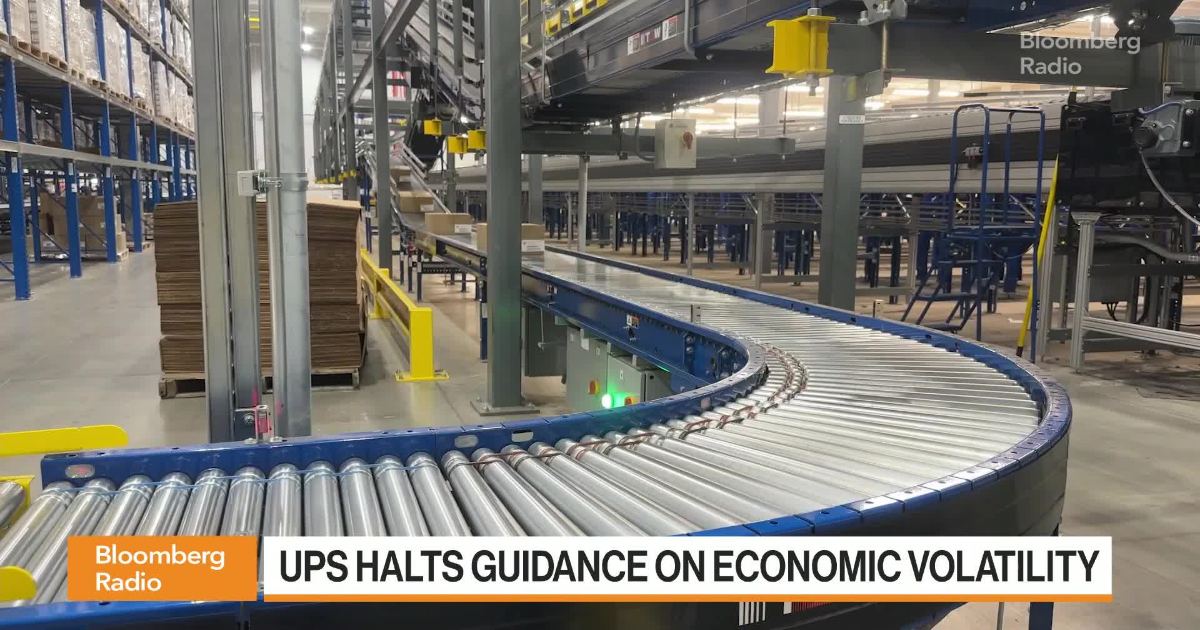Skip to content
Home
UPS to Cut 20,000 Jobs in Pullback From Amazon
CC-Transcript
- 00:00UPS in our view is and has been doing the things to kind of restructure its network to deal with the the realities of their business and how much it’s changed over the last couple of years. And they’re also focusing a lot more on revenue quality. So that would be in trying to win more share of small to midsize shippers. Also, you know, you noted they’re kind of gliding down, if you will, their exposure to Amazon, to some of their businesses. That just doesn’t make sense to me. They’re still going to do returns for Amazon, which is a good business for UPS from from a margin financial standpoint. Hayley, what kind of visibility does UPS have on their revenue stream? Like how much is contracted versus how much is is me walking up to the store and, you know, shipping a package across the country? That’s a great question, Paul. I think the reality is that they have somewhat a decent visibility into their business. A couple weeks out, I think that’s really about it. That’s just really because it’s they’re their customers are really driven by economic activity and it’s really tough to kind of really gauge that those volumes, especially in the current environment. In the current environment, given the uncertainty driven by tariffs, which is, you know, why earnings expectations for the second quarter will probably start moving lower as sell side analysts adjust their models. But in theory, if we put aside the macro for a second, I appreciate you said two thirds of it is macro, but the Amazon stuff is a good thing for them long term, right. Even though there’s near-term pain, like those are lower margin packages that they don’t want to do anymore, they’re going to focus on higher margin packages that could wind up being much more stable and profitable. Right. Yeah. And I actually, you know, said 95%. So I was a little more focused on, you know, us thinking that the majority of the shortfall in the to Q is really is really the macro. But yeah to your point they are really generate they’re really focusing on revenue quality. You know they mentioned on the call that some of their business out of Amazon fulfillment centers just really wasn’t profitable for them. So it obviously doesn’t make sense to to take that business and if they’re able to create capacity by getting rid of some of this business and filling it with what they call SMB small to midsize businesses, you know, that’s good. It’s going to be a good thing for margins overall, and it will allow them to generate the kind of returns that they can reinvest in their network. Because, you know, while they’re doing a lot of investing in now in automation and they’re closing some some facilities just to be a little more nimble than they were in the past, you know, they’re still going to continue to have to make those investments because technology continues to change. And those benefits, you know, will need to be driven by those investments, like a lot of companies are saying, you know, they’re not necessarily seeing the impacts of tariffs now, but they certainly expect to in the coming weeks and months. You cover everything in shipping rails, trucks, the ocean shippers, the airfreight guys, you cover it all. Are you seeing it now? Because I’ve actually seen some reporting over the weekend that maybe fewer ships are sailing from China to the U.S. Are you seeing it anywhere in your space? Yeah, we are. And to your point, bookings from China to the US are down 30 to 40%, depending on which press reports you read. You know, some of that is obviously there was a pull forward effect in our view before the tariffs were going into place. So people were rushing to get stuff out. So we don’t know really where that’s going to lie. Shippers are going to either they’re going to take the stance where they’re going to be like they’re going to sit back and wait to see what happens. Some are continue to do business as usual, and they’re just going to try to push off the costs associated with tariffs to customers, which obviously would be inflationary or mix of the two. So really, you know, it’ll be interesting to see how things progress. And at the end of the day, we might wake up tomorrow morning. There’s no tariffs, right? So that knows.

